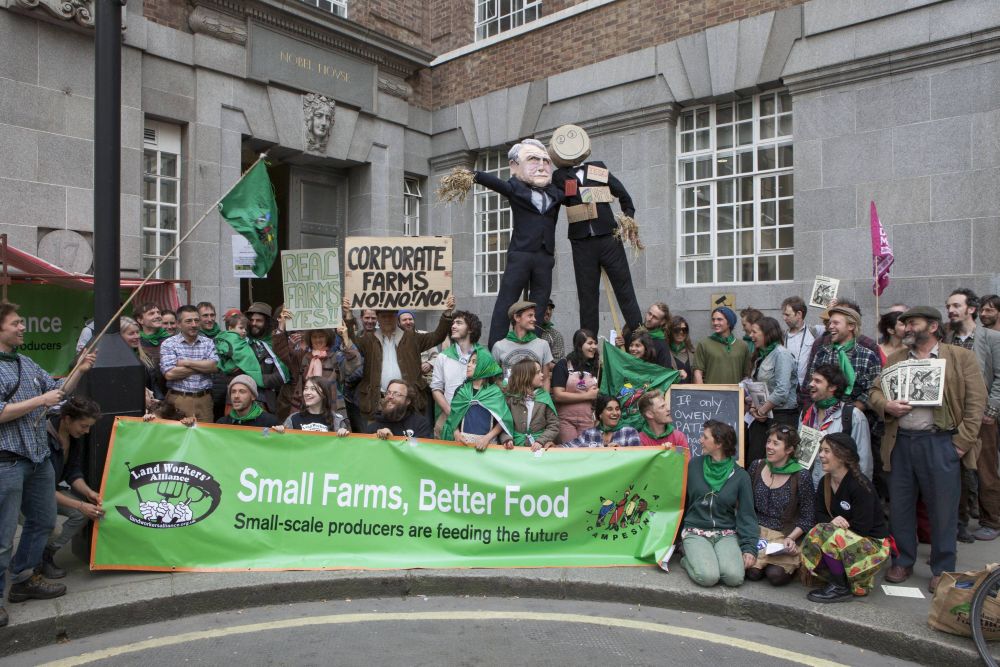
The Landworkers’ Alliance (LWA) have launched their post-Brexit policy recommendations outside Defra’s offices in London today (21 April).
The launch features the release of a report outlining the LWA’s key policy proposals for re-orientating agricultural support to deliver "high quality food" to UK consumers while building an "environmentally, socially and economically resilient" farming industry.
The campaigning group represents small farmers and has called for government policy to cater to a plurality of food producers, arguing that Defra policy has historically favoured large farms and big business approaches to food production.
The report highlights that less than 60% of food consumed in the UK is produced here, that Britain relies on the EU for 30% of food imports, and that between 2005 and 2015, the country lost 33,500 commercial holdings (more than nine farms a day).
Ed Hamer, LWA policy spokesperson, says LWA has been campaigning for the past five years for greater recognition of the role small-scale and family farmers play in feeding the country.
'Inequalities' of CAP
He said: "The UK’s exit from the Common Agricultural Policy (CAP) provides the most significant opportunity in a generation to reverse the inequalities of area-based payments and replace them with a truly progressive policy framework that genuinely supports more farmers and better food.
"As we leave Europe and the opacity of the CAP behind we’re confident that UK taxpayers will no longer tolerate farmers being paid simply for owning land.
"We believe the farm support budget could be targeted much more effectively in providing the research and infrastructure necessary to enable farmers to supply quality produce to local markets.
"This model does not depend on UK consumers paying more for high quality local food – it does however depend on more effective regulation of the industry to ensure farmers receive a greater share of the food pound."
LWA key recommendations
• Maintain £3.5bn per year in farm spending, but end area-based farm payments, instead targeting spending though a Whole Farm Management scheme, providing payments for environmental, social and economic public goods
• Cap farm payments at £150,000
• Introduce payments to improve soil health, biodiversity, water management and sustainable forestry, and increase funding for agroecology (an approach that combines plant science, social sciences and ecology and which has been touted by successive UN rapporteurs on food and farming)
• Support training, apprenticeships and research, which will benefit farmers, rather than big companies
• Establish an infrastructure scheme to provide capital for mixed farms, new entrants, farm
improvements, and shortened supply chains.
• Increase support for and recognition of Community Supported Agriculture projects
• Introduce measures to support employment in small-scale horticulture and dairy businesses
• Bring in a tariff and regulatory regime for food imports to protect domestic producers
• Decrease dependence on imported animal feed, to improve the viability of high-welfare, more environmentally sustainable meat
• Strengthen the Grocery Code Adjudicator’s position
